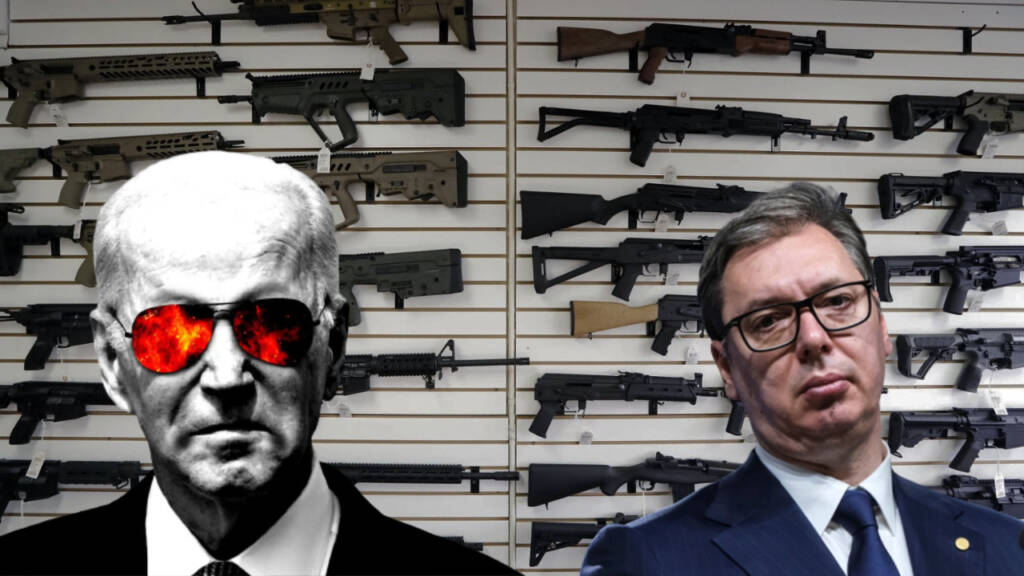The geopolitical landscape in the Balkans has been marred by tension and conflict for centuries. Now, tensions have started to boil again.
In a move that reeks of desperation, a Belgian arms firm, New Lachaussee, is facing prosecution for allegedly supplying weapons to Russia. As a result, an imminent export ban on weapons to Serbia is being imposed.
The ban, confirmed by the authorities of Belgium’s Wallonia region, underscores NATO’s intensifying encirclement of Serbia. However, the motivations behind such a drastic measure need closer scrutiny.
It is crucial to recognize that Serbia is neither a member of the European Union nor NATO. While it maintains close ties with Russia, Serbia has publicly condemned Russia’s invasion and refused to comply with Western sanctions on Moscow.
The Boiling Tensions
Additionally, Serbia grapples with internal issues, particularly its relationship with Kosovo, which serves as a prominent base for NATO. These factors contribute to Serbia’s unique geopolitical position and influence its alliances and international stance.
For those unknown, Orthodox Christianity has been deeply rooted in the Balkans for centuries. However, NATO’s successful intervention in Kosovo in 2008, carving out a predominantly Muslim nation from Serbia, has strained Serbia’s relationship with the alliance.
Since then, Serbia’s sentiment towards NATO and the West has soured considerably. The population questions NATO’s activities and harbors deep-seated concerns about their intentions.
The current developments raise concerns about NATO’s grander plan to encircle Serbia entirely. As witnessed in Ukraine, where Russia’s invasion led to significant damage to religious buildings, Serbia fears a similar fate.
Historically, NATO has supported Kosovo in its disputes with Serbia, while Serbia has relied on Russia due to their shared historical ties. However, recent events suggest a shift in NATO’s strategy. The alliance has called for a diplomatic resolution and de-escalation of hostilities, choosing to side with Serbia.
This departure from the traditional pro-Kosovo had raised questions about NATO’s true intentions and the implications for the region.
Read More: NATO Forces Begin Encircling Serbia- A Terrible Omen
The Intentions!
However, things are now coming back to square one. The involvement of a Belgian arms firm in supplying weapons to Russia via an intermediary in Serbia raises questions about the Belgian authorities’ actions.
If they were aware of potential violations of EU sanctions, imposed after Russia annexed Crimea in 2014, why did they not intervene sooner? The delayed response from Belgian authorities adds further complexity to the situation and calls for a thorough examination of their motivations.
NATO’s inconsistent stance toward Serbia only adds to the doubts surrounding its intentions. While the alliance aims to exert pressure on Serbia, the ultimate outcome is far from a cakewalk.
The encirclement strategy and recent developments may further polarize the region and strain relationships among key stakeholders. What exactly is NATO up to remains unknown. But yes, it is definitely an alarm for Serbia.
Read More: Serbia makes NATO lick the dust on its boots
The alliance’s steady positioning of pawns in the region only adds to these anxieties. Serbian leaders, such as Dodik and Vucic, possibly are waiting for all pawns to take their place before they unleash their stratagems.
Watch More:
